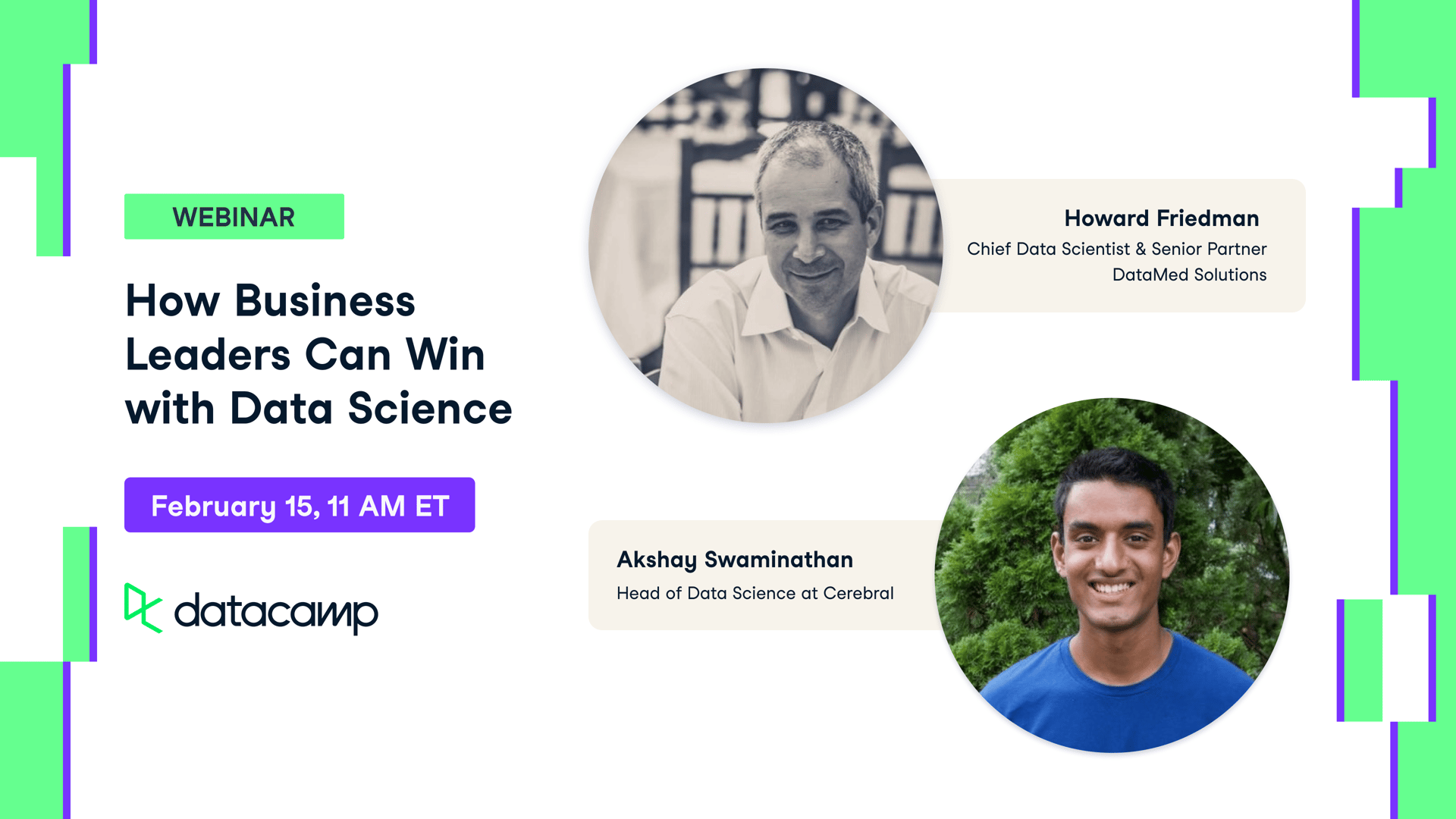Saltar al contenido principalMás información





Altavoces
¿Entrenar a 2 o más personas?
Obtenga acceso de su equipo a la biblioteca completa de DataCamp, con informes centralizados, tareas, proyectos y másRelacionado
The Definitive Guide to Machine Learning for Business Leaders
Craft a 21st-century data strategy to optimize business outcomes.white paper
How to Win the Competition for Data Professionals in 2022
What are the challenges of hiring data professionals and how DataCamp can helpwebinar
Data Science for Business Leaders
Here's how to build a high-performance data team aligned with company strategy.webinar
The Art of Data Storytelling: Driving Impact with Analytics
In this session, three industry leaders will shed light on the art of blending analytics with storytelling, a key to making data-driven insights both understandable and influential within any organization.webinar
How to Win a DataCamp Competition
In this session, you'll hear the stories of past DataCamp Competition winners. You'll get tips on how to take part, learn secrets on how to top the leaderboards, and discover how winning a competition can change your career.webinar
How Top Universities Teach Data Science
In this session you'll learn from leaders at top universities what the essential data skills are for common data roles like data analyst and data scientist, along with essential insights into how to get a data career.Join 5000+ companies and 80% of the Fortune 1000 who use DataCamp to upskill their teams.
Loved by thousands of companies


